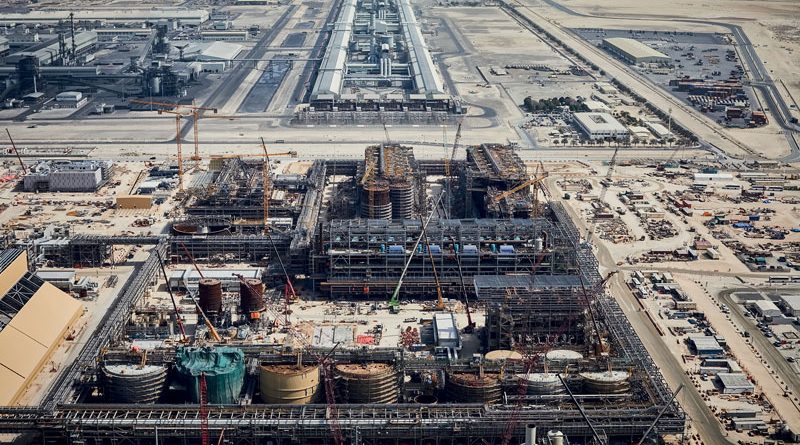EGA, New Energy from Expansion in the Upstream
The start of the new alumina refinery in Al Taweelah and the bauxite supplies from the Guinea Alumina Corporation mining project will complete the phase of EGA’s great investments in the upstream segment. This will strengthen the international presence of the UAE aluminium giant. An interview with Abdulla Kalban, Managing Director and Chief Executive Officer, Emirates Global Aluminium
by Mario Conserva
2019 will be a turning point for EGA. The main primary aluminium producer in the Middle East will celebrate its fortieth anniversary of aluminium production in the United Arab Emirates and start operations at both its new refinery at Al Taweelah (Abu Dhabi) which will be able to produce 2 million tons of alumina per year, and at its bauxite mining and export project Guinea Alumina Corporation. These two strategic projects secure the raw materials EGA needs and create new revenue streams, as explained by Abdulla Kalban, Managing Director and Chief Executive Officer, Emirates Global Aluminium.
EGA has been heavily investing in its upstream ventures this year. What is the progress?
EGA has a heritage stretching back almost four decades in aluminium smelting. We began producing metal at Jebel Ali in Dubai back in 1979, and production started in Al Taweelah in Abu Dhabi in 2009. We are currently developing two major projects to expand our business upstream and internationally. We are making good progress on both. Our strategic objective is to secure the raw materials that the UAE’s aluminium industry needs at competitive prices, and to create new revenue streams for EGA.
Al Taweelah alumina refinery is the first to be built in the UAE, and only the second to be built in the Middle East. Once fully-ramped up, it is expected to produce some 2 million tonnes of alumina per year which is enough to meet 40 per cent of EGA’s alumina requirements. We are expecting first alumina during the first half of 2019.
We had more than 13,000 people working in construction of Al Taweelah alumina refinery at peak, and we have reported numerous milestones this year. We began importing bauxite in June and caustic soda in September. We are also stockpiling hydrate which we need for commissioning.
In Guinea, we have about 3,000 people building our Guinea Alumina Corporation project. We are expecting first bauxite exports from the project during the second half of 2019. Again we have reached some important milestones, most recently the arrival of the largest single piece of equipment that we need, the Stacker Reclaimer.
2019 looks set to be a transformative year for EGA, and will also be the 40th anniversary of aluminium production in the UAE.
What are the next steps in the completion of the alumina refinery? What will its finalisation mean for EGA?
We are making progress every day towards first alumina. We are steadily finishing construction and moving into pre-commissioning. Al Taweelah alumina refinery is an important project for EGA and for the United Arab Emirates. Alumina refining is a new industrial sector both for our company and our country.
This new alumina refinery strengthens and expands EGA as a company, and creates more jobs and economic opportunity. Around 600 people will run the refinery, and it creates the possibility of new companies around us – an example is the deal we signed recently to purchase caustic soda, which is a raw material we need, from a new company that plans to build a chemicals complex near us. Another example is at the port. We will be importing bauxite using the largest ships. Our long term requirement for this has enabled the port company to invest in dredging and widening the approach channel. This port will now be the first in the region to be able to accommodate the biggest ships, which opens new opportunities for other types of trade.
What will EGA’s key focus be for the next future?
Our primary focus will be the completion of our upstream ventures, the Guinea bauxite mine and the Al Taweelah alumina refinery both of which are expected to be operational during the course of next year. At the same time, we will be ensuring we continue to run our existing business to the highest possible standard to deliver value to our customers and our shareholders.
What technological advancements have been made or are currently being invested in?
We have developed our own technology in the UAE for more than 25 years. We have used our homegrown technology in every smelter expansion since the 1990s and last year we completed a project to retrofit all our older production lines. That means all 2,777 reduction cells at EGA use our technology. Our technology development team is working on continuously improving on our technology, and also looking further ahead at what will create competitive advantage in the future. We are also interested in developments coming in Industry 4.0 and how they can be leverage in aluminium smelting.
How is EGA preparing to meet the new skill demand for heavy industries?
The UAE has some particular characteristics as an employment market because we are a very cosmopolitan society with a tradition of welcoming talent from all over the world. However like any country we also want to ensure we nurture our own national human capital. EGA has been built on engineering excellence, technology and innovation. We are a major employer of science, technology, engineering and maths professionals, with over 1,540 experts in these fields including over 500 UAE Nationals. There is a wide spectrum of STEM-related careers and opportunities available at EGA ranging from chemical engineering, process management to software development and research and development jobs. EGA has more than 100 graduate trainees at any one time, and we have sponsored the educations of more than 350 UAE Nationals since 2001. Engaged and active young people are as critical to our business as they are to the nation. As EGA has been developing rapidly for more than a decade now, many of the young graduates who have joined us have had the opportunity to participate in major from early in their professional lives. But I am particularly proud that we invest a lot of time and effort into training all our employees. We provide around 2,500 management training courses every year, for example, and our training centre is accredited so it can provide qualifications that are internationally recognised. I believe that in our industry, where so many gains are made through continuous improvement, we must particularly value long-term experience. I am an example myself – I originally joined in 1985 as a graduate trainee.
What has been the contribution to sustainability efforts by EGA?
At EGA we aim to apply the principles of sustainability across our business, focusing not just on our economic but also on our social and environmental performance. We recognise that our role must extend beyond simple compliance and keeping up with our peers. Working with our customers, regulators, shareholders and stakeholders we intend to be an innovator and a leader in sustainability. We were the first Middle East headquartered company to apply to join the Aluminium Stewardship Initiative and we have been aligning our sustainability strategy and core business practices to the ASI Performance Standards. We aspire to seek ASI certification.
We issued our first sustainability report a couple months ago, for 2017 and also disclosing data from 2014 to 2016. The report was prepared to Global Reporting Initiative standards.
To do its job properly, a sustainability report must be open about challenges. But we were also able to report many successes. One example is the great progress we have been making on managing waste, particularly spent pot lining. We have been working with the UAE cement industry since 2010 to find re-uses, and in 2017 we sent more to cement companies than we produced.
What can you say about your overall performance so far in 2018?
Emirates Global Aluminium is not a public company, and we disclose our financial performance only annually. Last year, we reported a net income of AED 3.3 billion (USD 898 million). This was an increase of 59 per cent from AED 2.1 billion in 2016. We achieved record production of cast metal last year at 2.6 million tonnes. Some 82 per cent of our production was value-added products, making us the largest global ‘premium aluminium’ producer. Clearly this year has been an interesting one for our industry, and companies in our sector have had a lot to contend with from the imposition of tariffs in the United States to issues in global alumina supply. Our job is to build robust businesses that can withstand these kinds of pressures, and that is what we have been focused on for many years at EGA.

